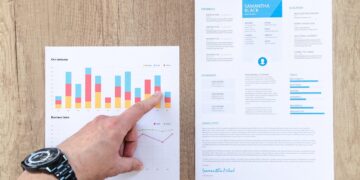Maximizing Your Future: Innovative Strategies for Early Retirement Planning
Early retirement is an appealing goal for many. With the right strategies, financial freedom doesn’t just have to be a dream—it can be a reality. The key to accomplishing early retirement lies in robust planning, wise investment decisions, and innovative approaches to wealth accumulation. In this article, we delve into some of the most effective strategies for early retirement planning to help you step off the workforce earlier and enjoy your long-awaited freedom.
Understanding Early Retirement
Early retirement typically refers to stepping back from full-time work before the conventional retirement age of 65. This doesn’t necessarily mean leaving the workforce entirely but often transitioning to less stressful and less time-consuming roles or even part-time endeavors purely driven by passion rather than financial necessity.
The Appeal
The draw to early retirement is largely driven by the desire for more personal time, better health, and the freedom to pursue hobbies and interests outside the constraints of a 9-to-5 job.
Demographic Trends
Increasingly, younger generations, notably the millennials, are prioritizing life experiences and personal fulfillment over traditional career paths, making early retirement more appealing than ever.
Key Strategies for Early Retirement Planning
Increase Your Savings Rate
Boosting how much money you save is arguably the most straightforward yet powerful tool in your early retirement planning arsenal.
How to Achieve a Higher Savings Rate
- Budgeting: Effective budgeting ensures you live within your means and save enough. Utilize budgeting apps or traditional methods like spreadsheet tracking.
- Cutting Costs: Reducing unnecessary expenses maximizes your capacity to save.
Invest Wisely
Investment can generate passive income streams that are essential for early retirement. The goal is to create a diverse portfolio.
Types of Investments
- Stocks and Bonds: A balanced mixture of these can yield good returns over time.
- Real Estate: Offers potential for rental income and capital appreciation.
- Retirement Accounts: Maximize contributions to accounts like 401(k)s and IRAs for tax advantages.
Consider Alternative Income Streams
Creating additional sources of income can significantly reduce the time it takes to achieve financial independence.
Ideas for Alternative Income
- Side Businesses: Leverage skills to create a side business that provides additional income.
- Freelancing: Utilize professional skills to freelance during off-hours.
Planning Tools and Resources
Financial Planners
Professional financial planners can offer personalized advice tailored to your financial situation, helping you strategically plan for early retirement.
Online Calculators
Free tools can help project scenarios like investment growth, savings rates, and more, giving you a clearer picture of what’s needed to retire early.
Common Questions in Early Retirement Planning
How Much Money Do I Need to Retire Early?
The answer varies depending on your lifestyle, location, and how long you plan to be in retirement. A general rule is the 25x rule, which suggests you should have 25 times your annual expenses saved.
Can I Retire Early If I’m Currently in Debt?
While debt can complicate early retirement, it’s not impossible. Prioritize high-interest debts and consider consolidation or refinancing for better rates.
Is Healthcare a Concern with Early Retirement?
Yes, healthcare is a significant consideration as Medicare isn’t available until age 65. You’ll need to budget for private insurance or health-sharing plans until then.
Avoiding Common Pitfalls
Failing to Plan for Inflation
Inflation can erode your purchasing power. Ensure your investment strategy accounts for inflation, particularly in long-term projections.
Underestimating Expenses
Many people underestimate their post-retirement expenses. It’s essential to factor in occasional big-ticket items and lifestyle spending.
Neglecting Tax Implications
Taxes can take a significant chunk of your retirement savings. Plan with tax efficiency in mind, possibly consulting a tax advisor.
Conclusion
Early retirement is achievable with disciplined saving, strategic investing, and thoughtful planning. By starting early, being consistent, and adapting to economic changes, you can set the stage for a financially secure and fulfilling early retirement. Remember, the path to early retirement is a personal journey that requires you to make informed decisions that best suit your individual needs and lifestyle goals.



























































